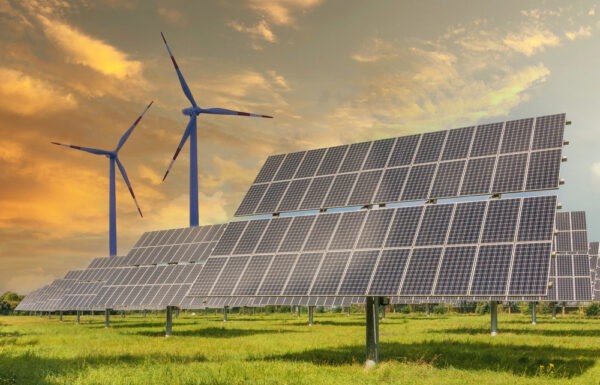Manufacturers Capitalize on Clean Energy Tax Credits

Since the passing of the Inflation Reduction Act (IRA) in 2022, an increasing number of manufacturers are tapping into clean energy tax credits. As of March 2024, over 500 companies and 45,500 projects have applied for these credits, indicating a growing interest in renewable energy initiatives. It’s a positive sign for the renewables industry: one of manufacturing’s most up-and-coming sectors.
Streamlined application processes
Since the introduction of IRA clean energy credits over 18 months ago, numerous producers have faced challenges in taking full advantage of them — until now. One significant catalyst for the recent surge in applications is a revamped process facilitated by the Internal Revenue Service (IRS). A new online portal simplifies the process for companies involved in receiving elective payments, transferring clean energy credits, or claiming CHIPS credits.
Most projects seeking registration through the new IRS portal fall under one of two provisions:
- The clean energy investment tax credit, which constitutes 80% of registrations
- The clean energy production tax credit, which accounts for over 15% of registrations
These projects predominantly focus on solar and wind facilities, as indicated by the IRS. For smaller solar manufacturers, the production tax credit — which is based on energy production from renewable sources and measured in kilowatt hours — is thought to be more advantageous. Conversely, larger capital investment projects are finding greater benefit in opting for the investment tax credit. In either case, it’s clear there’s significant interest from the manufacturing industry.

New credit delivery mechanisms
Alongside its easy-to-use online portal, the IRS has also introduced two new credit delivery mechanisms, making it even easier for more companies to register:
- Elective pay: primarily for tax-exempt entities
- Transferability: allows companies to sell tax credits to third-party buyers for cash
Companies have shown overwhelming interest in transferability, with more than 98% of facilities or projects opting for this approach. This is notable largely because it allows manufacturers to monetize any credits they’re eligible for — especially in situations where operational deductions result in taxable losses.
First Solar, for example, recently entered into an agreement to sell up to $700 million in advanced manufacturing production tax credits to fintech firm Fiserv to fully capitalize on the credit. It’s an interesting development poised to fuel significant redemption of clean energy tax credits.
Domestic requirements for credit capitalization
While companies have been quick to leverage investment tax credits, the uptake of advanced manufacturing production credits has been slow to gain steam. Experts attribute this to uncertainties surrounding compliance with domestic requirements. While eligibility doesn’t require domestic manufacturing for subcomponents, other sections offer bonus credits for domestically produced components.
Encouraging growth through education and collaboration
As the utilization of clean energy tax credits continues to expand, there is a growing need for education and collaboration within the manufacturing sector. Many companies, especially smaller firms, might still be unaware of the full scope of available incentives or the best way to navigate the application process. This lack of awareness can hinder their ability to capitalize on these valuable opportunities.
The Inflation Reduction Act has improved access to (and interest in) clean energy tax credits, and further clarity and guidance are necessary to fully realize the financial incentives available. As these credits become clearer and more accessible, they’ll likely drive new sustainable growth across the manufacturing sector.